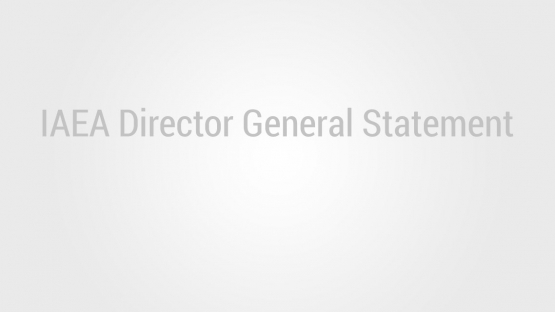I am pleased to welcome you to this Third Technical Co-operation Policy Review Seminar. Perhaps, I should just say a few words as to why we have such seminars.
Our Statute requires of us that in assisting Member States, we are to give due consideration to the needs of the developing world.
In the early days of technical co-operation, the necessary emphasis was clear. The Agency assisted Member States to set up appropriate departments to train scientists and technicians in the basics of what was then a new and rapidly expanding science and an even newer technology. A further task was to equip laboratories in which basic studies could be carried out, with an eye to possible practical applications.
By 1982, when the first Technical Co-operation Policy Review Seminar was held the groundwork in nuclear science and technology had been completed in many of the Member States. Many were already successfully applying techniques in various fields, such as agriculture, medicine, hydrology, industry and power generation. Some institutes had programmes that were operating with very little input from the Agency. The main Technical Co-operation policy themes at that time were:
multi-year programming and project planning to ensure effective transfer of the more complex technologies; inter-regional and regional projects, with a special view to furthering TCDC; dynamic programming that would have maximum flexibility for allocating or redirecting resources.
The second Policy Review Seminar in 1986 reviewed the results of the first and led to further refinements; mainly in the programming and approval cycles leading to the present two year programming cycle and to the meetings of the Board of Governors in December.
This third Seminar is being held against a backdrop of very considerable changes in the global patterns of technology transfer and approaches to technical assistance in general: for instance there is now a better definition of global development strategies and sustainable development has been established as a clear goal. On the other hand, "donor fatigue" and increasing competition for limited financial resources have become more apparent.
We need to make even greater efforts against that background to ensure that our Technical Co-operation programme and approach serve their stated purposes. Only if we succeed in this, can we expect resources to flow.
This Seminar is focused on three issues:
- radiation protection and waste management;
- medium-term country plans;
- impact of technical co-operation projects.
Let me highlight these issues one by one, as a way of seeking recommendations or advice.
- In Radiation Protection and Waste Management
- First, is the terminology "Radiation Protection and Waste Management Infrastructure" clearly understood by everyone? Are the minimum requirements reasonable for each development stage of the nuclear activities?
- If radiation protection and waste management infrastructure is found deficient, can Member States agree that corrective actions shall take place within the Technical Co-operation programme and be given priority?
- Shall strengthening radiation protection and waste management infrastructure be made a condition for approval of requests for expansion of nuclear activities?
- Should the radiation safety infrastructure be under continuous review by Member States and by the IAEA?
- With Respect to the Medium Term Country Plans
- How can the nuclear programmes of States be linked to the priorities in their national and sectoral development plans? Which problems should be addressed and how would results contribute to development goals?
- Do Member States want the Agency to get involved in drawing up such plans on nuclear matters, implying consultation with various ministries, planning authorities and other international organizations?
- Do Member States agree that the Agency should draw up, based on Medium Term Country Plans, an agreed plan for the Agency's assistance for each country?
- How gradual should the elaboration of such plans be giving due consideration to the limitation in capabilities and manpower in Member States and the Agency?
- Who will endorse the Medium Term Country Plan? Atomic Energy Commissions, Planning authorities? Is such endorsement imperative?
- For the Impact Issue:
?
- How can the Agency facilitate the efforts of Atomic Energy Commissions to co-operate more effectively with end-users in the health, agricultural and other sectors?
- Should Member States and the Agency look for cost effective projects which make a contribution to social and economic development?
- Do Member States agree to include a cost benefit parameter in the appraisal system of Technical Co-operation projects?
- Should the Agency consider assisting Member States in competing for funds from donor institutions and donor countries?
These questions and many others in the background document are of course indicative and not intended to confine your discussions. I trust, however, that they will help to stimulate the discussion. I look forward to your advice and recommendations.


